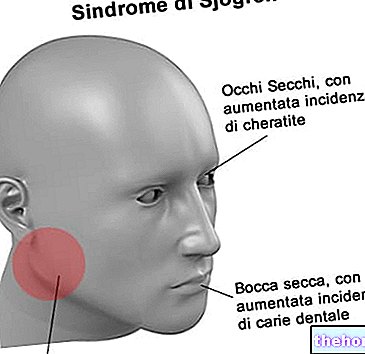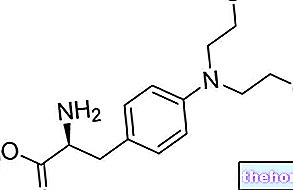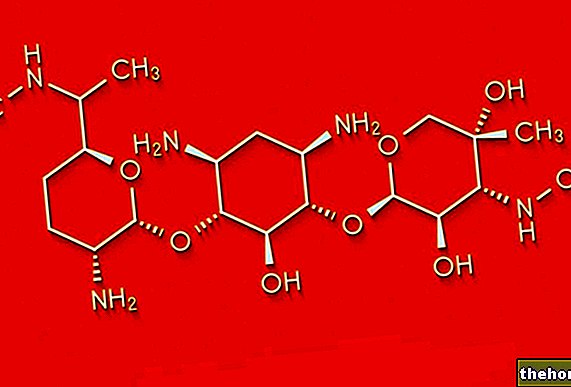Definition
Tonsillitis outlines an inflammatory process affecting the palatine tonsils, located on the sides of the throat and above the base of the tongue; the inflammation can have an acute or chronic course and is closely linked to pharyngitis (pharyngo-tonsillitis).
Causes
In most cases, tonsillitis is caused by a "viral infection: among the pathogens responsible can not miss the viruses of mononucleosis, influenza, HIV, enterovirus and" Adenovirus. In any case, bacteria too. they can cause or foment inflammation of the tonsils (Streptococcus pyogenes and group A β hemolytic streptococcus).
Symptoms
Tonsillitis begins with the typical enlargement of the tonsils, from the surface of which whitish material tends to come out; redness, inflammation and local hyperemia are often accompanied by changes in the tone of the voice, difficulty in swallowing liquid and solid foods, fever, swollen lymph nodes in the neck, sore throat, headache, nausea, hoarseness, salivation intense and cough.
The information on Tonsillitis - Tonsillitis Treatment Drugs is not intended to replace the direct relationship between health professional and patient. Always consult your doctor and / or specialist before taking Tonsillitis - Tonsillitis Cure Medicines.
Medicines
As analyzed, tonsillitis is generally caused by viruses; considering that the disease tends to self-resolve, the most used drugs are useful for speeding up healing and relieving the perception of redness and inflammation in the throat and tonsils. For this purpose, antifebrile, anti-inflammatory and possibly analgesics are used. The use of antibiotics is reserved exclusively for bacterial tonsillitis, as these drugs have no benefit against viral inflammations / infections.
In general, it is possible to adopt simple rules of behavior to accelerate the healing of the disease, in addition to the possible use of drugs (when necessary):
- rest
- abundant intake of hot (broth, milk, tea) or cold (popsicles) liquids
- gargling with warm salt water, repeated several times during the day
- avoid smoking
- humidify the environment
- wash your hands frequently (preventive measure for any type of infection)
The following are the classes of drugs most used in the therapy against tonsillitis, and some examples of pharmacological specialties; it is up to the doctor to choose the most suitable active ingredient and dosage for the patient, based on the severity of the disease, the state of health of the patient and his response to treatment:
- Paracetamol (or acetaminophen, eg. Tachipirina, Efferalgan, Sanipirina) recommended to minimize pain and reduce fever. Taken orally in the form of tablets, syrup, effervescent sachets, or suppositories, the drug is generally administered at a dosage of 325 - 650 mg every 4-6 hours, for 6-8 consecutive days, to lower the fever. When the fever, especially if high, persists for a long time, seek medical attention.
- Ibuprofen (eg. Brufen, Moment, Subitene) for medium-moderate pain in the throat, it is recommended to take orally a dose of active equal to 200-400 mg (tablets, effervescent sachets) every 4-6 hours after meals, as needed. Do not take more than 2.4 grams per day. Intravenous administration to relieve tonsillitis pain is not indicated.
- Acetylsalicylic acid (eg Aspirin, Vivin, Ac Acet, Carin) it is recommended to take a drug dose of 325-650 mg per day, rectally or orally every 4 hours, as needed. Do not exceed 4 g per day. Do not administer to children under the age of 12: the use of salicylates in children can cause brain damage, liver damage and Reye's syndrome. The dose is reserved for adults only..
- Penicillin (eg. Benzyl B, Benzyl P): is the drug of choice used for the treatment of bacterial tonsillitis (beta hemolytic streptococcus). It should be taken orally for a period of 10 days. In case of hypersensitivity or allergy to penicillin, it is possible to take an alternative antibiotic. It is recommended to end the treatment period with the antibiotic, even when you notice a noticeable improvement in symptoms after a few days: completing the drug therapy is one of the prevention measures to avoid relapses. tonsillitis and antibiotic resistance.
- Amoxicillin (eg Augmentin, Klavux) when bacterial tonsillitis is diagnosed from the first symptoms, start therapy with 250-500 mg of active orally, every 8 hours, for 7-10 days, or 500-875 mg orally twice a day. If bacterial tonsillitis is diagnosed later, it is recommended to take this penicillin at a dosage of 775 mg orally once a day, one hour before meals for 10 days. Particularly useful in case of pyogenic Streptococcus superinfection.
- Clarithromycin (eg. Biaxin, Macladin, Klacid, Soriclar, Veclam) it is recommended to take one tablet of 250-500 mg of the drug every 12 hours. In case of suspected or confirmed tonsillitis from Haemophilus influenzae, take 500 mg of active. Continue the therapy for 10 days.
In case of chronic tonsillitis, surgical excision of the tonsils (tonsillectomy) is recommended: currently, surgical removal is only indicated for those patients whose symptoms of tonsillitis interfere with normal daily activities. Not surprisingly, especially in children, the tonsils exercise a fair direct immunological activity, very useful for the prevention of infections.




























